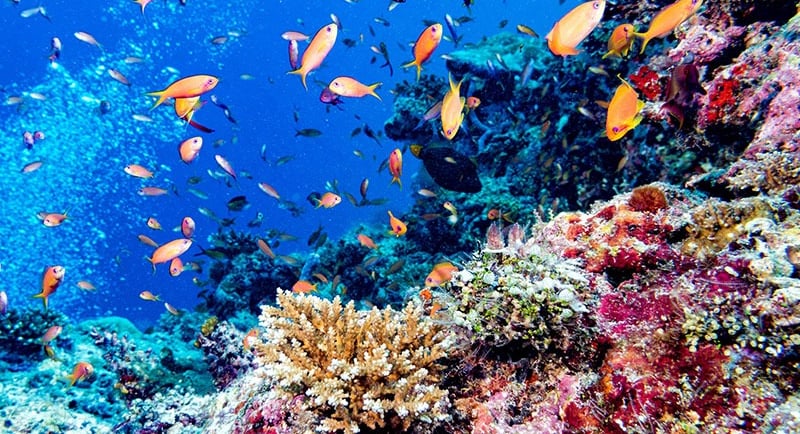Lakshadweep is facing severe Coral Bleaching in India
Lakshadweep is witnessing India’s worst coral bleaching, with over 84% of its reefs affected, as informed in the Parliament. The global increase in sea temperatures and climate change are driving this crisis, threatening marine biodiversity, fisheries, and coastal protection.


Lakshadweep has been experiencing 84.6% of its coral reef area under bleaching, which is the highest in India, as informed by the Ministry of Earth Sciences in Parliament. The response came to a question raised by BJP MP Rajiv Pratap Rudy in the Lok Sabha on whether the Fourth Global Coral Bleaching Event is affecting coral reefs along India’s coastline.
Corals are tiny marine animals that live in colonies and build massive reef structures in the ocean. Each coral secretes a hard skeleton of calcium carbonate. Over thousands of years, these skeletons accumulate to form coral reefs, often described as the “rainforests of the sea” because they are among the most diverse ecosystems on Earth.
The importance of coral reefs cannot be overstated:
Biodiversity hotspots – Though they cover less than 1% of the ocean floor, reefs support nearly 25% of all marine species.
Food security – Millions of people depend on reef fisheries for their daily food and income.
Coastal protection – Reefs act as natural seawalls, reducing wave energy and protecting shorelines from erosion, cyclones, and storm surges.
While Lakshadweep is the worst affected, the ministry reported that 27% of corals in the Gulf of Mannar (located off the southeastern coast of Tamil Nadu between India and Sri Lanka) and 15–18% of corals in the Andaman & Nicobar Islands are also under bleaching stress.
Scientists explain that bleaching occurs when corals, stressed by rising sea surface temperatures, ocean acidification, or pollution, expel the algae (zooxanthellae) living in their tissues. This not only strips them of their vibrant colors but also cuts off their main source of food. If stressful conditions persist, corals die, endangering marine biodiversity and the coastal communities that depend on them.
The situation in Lakshadweep is particularly alarming because the islands are ecologically fragile and heavily dependent on reef health for fisheries, coastal protection, and tourism. Climate change-induced warming seas remain the primary trigger behind this widespread bleaching event, and experts warn that without urgent global and local action, India’s coral ecosystems may face irreversible damage.
